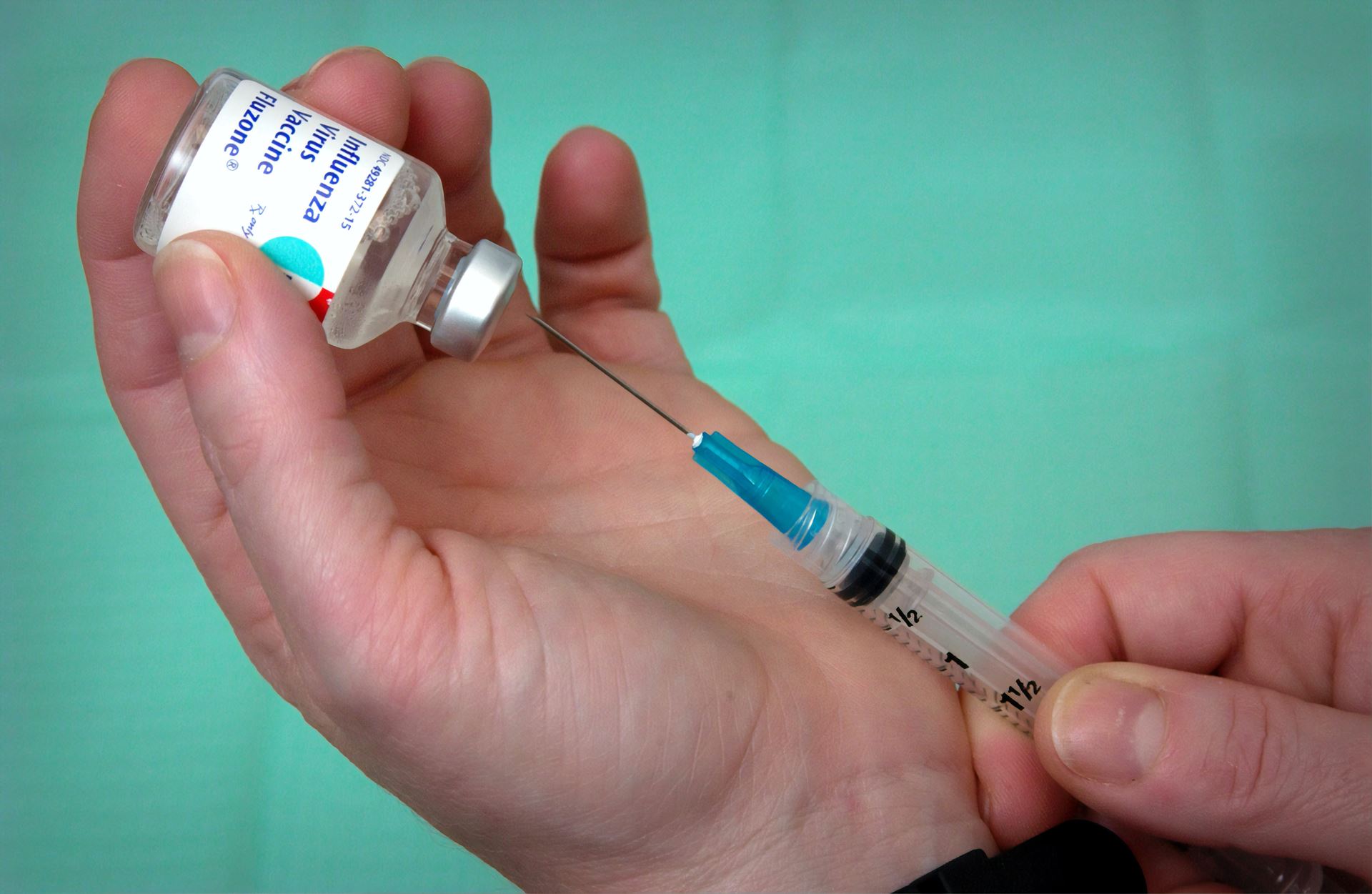Flu Vaccination 2021

Flu Vaccinations available to BOOK NOW
Please contact the surgery on 01945 476999 to arrange your appointment.
Flu vaccine
The flu vaccine is a safe and effective vaccine. It's offered every year on the NHS to help protect people at risk of getting seriously ill from flu.The best time to have the flu vaccine is in the autumn or early winter before flu starts spreading. But you can get the vaccine later.
Flu vaccine and coronavirus (COVID-19)
Flu vaccination is important because:
- more people are likely to get flu this winter as fewer people will have built up natural immunity to it during the COVID-19 pandemic
- if you get flu and COVID-19 at the same time, research shows you're more likely to be seriously ill
- getting vaccinated against flu and COVID-19 will provide protection for you and those around you for both these serious illnesses
If you've had COVID-19, it's safe to have the flu vaccine. It will still be effective at helping to prevent flu.
Who can have the flu vaccine?
The flu vaccine is given free on the NHS to people who:
- are 50 and over (including those who'll be 50 by 31 March 2022)
- have certain health conditions
- are pregnant
- are in long-stay residential care
- receive a carer's allowance, or are the main carer for an older or disabled person who may be at risk if you get sick
- live with someone who is more likely to get infections (such as someone who has HIV, has had a transplant or is having certain treatments for cancer, lupus or rheumatoid arthritis)
- frontline health or social care workers
Flu vaccine for people with long-term health conditions
The flu vaccine is offered free on the NHS to anyone with a serious long-term health condition, including:
The flu vaccine is offered free on the NHS to anyone with a serious long-term health condition, including:
- respiratory conditions, such as asthma (needing steroid inhaler or tablets), chronic obstructive pulmonary disease (COPD), including emphysema and bronchitis
- diabetes
- heart conditions, such as coronary heart disease or heart failure
- being very overweight – a body mass index (BMI) of 40 or above
- chronic kidney disease
- liver disease, such as hepatitis
- neurological conditions, such as Parkinson's disease, motor neurone disease, multiple sclerosis (MS), or cerebral palsy
- a learning disability
- problems with your spleen, for example, sickle cell disease, or if you have had your spleen removed
- a weakened immune system as the result of conditions such as HIV and AIDS, or taking medicines such as steroid tablets or chemotherapy
Flu vaccine if you're Pregnant
You should have the flu vaccine if you're pregnant to help protect you and your baby.
It's safe to have the flu vaccine at any stage of pregnancy.
Flu vaccine for frontline health and social care workers
If you're a frontline health and social care worker, your employer should offer you a flu vaccine. They may give the vaccine at your workplace.
You can also have an NHS flu vaccine at a GP surgery or a pharmacy, if you're a health or social care worker employed by a:
- registered residential care or nursing home
- registered homecare organisation
- hospice
Who should not have the flu vaccine
Most adults can have the flu vaccine, but you should avoid it if you have had a serious allergic reaction to a flu vaccine in the past.
You may be at risk of an allergic reaction to the flu vaccine injection if you have an egg allergy. This is because some flu vaccines are made using eggs.
Ask a GP or pharmacist for a low-egg or egg-free vaccine.
If you're ill with a high temperature, it's best to wait until you're better before having the flu vaccine.
How effective is the flu vaccine?
The flu vaccine gives the best protection against flu.
Flu vaccines help protect against the main types of flu viruses, although there's still a chance you might get flu.
If you do get flu after vaccination, it's likely to be milder and not last as long.
Having the flu vaccine will also stop you spreading flu to other people who may be more at risk of serious problems from flu.
It can take 10 to 14 days for the flu vaccine to work.
Flu vaccine side effects
Flu vaccines are very safe. All adult flu vaccines are given by injection into the muscle of the upper arm.
Most side effects are mild and only last for a day or so, such as:
- slightly raised temperature
- muscle aches
- sore arm where the needle went in – this is more likely to happen with the vaccine for people aged 65 and over
Try these tips to help reduce the discomfort:
- continue to move your arm regularly
- take a painkiller, such as paracetamol or ibuprofen – some people, including those who are pregnant, should not take ibuprofen unless a doctor recommends it
Page created: 24 September 2020